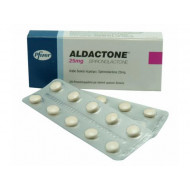-550x550w.jpeg)
Growth hormone, which stimulates the growth of bones and muscles
It is produced by somatotrophs of the anterior pituitary gland under the control of somatostatin and somatoliberin.
Main effects:
- stimulation of linear growth,
- maintenance of tissue integrity,
- blood glucose levels sufficient for the functioning of the brain.
Genotropin promotes bone and soft tissue growth by acting through insulin growth factors. It accelerates protein synthesis by providing positive nitrogen and phosphorus balances and reducing urea levels. Due to the high need for growing tissues for ions, the excretion of sodium and potassium in the urine is inhibited; absorption of calcium in the intestine increases. Genotropin, by stimulating the breakdown of fats in adipose tissue, mobilizes fatty acids and activates their uptake from the blood by muscle tissue and the liver (where they are converted to glucose).
Genotropin affects the level of blood glucose that is opposite to the action of insulin, that is, it prevents its absorption by tissues. Genotropin acts on the immune system by increasing the number of T-lymphocytes. STH increases sweating. Genotropin is released in impulses, the amplitude of which is maximum in the IV phase of sleep. After eating, the level of the hormone decreases sharply, and during fasting, it increases by about 15 times (second day).
The secretion of the hormone is increased during physical work, during deep sleep, with hypoglycemia, with a protein-rich diet. Increased secretion of Genotropin by the pituitary gland during growth leads to gigantism, and in adults - acromegaly. Reduced release of Genotropin during growth leads to dwarfism. In adults, there are no visible symptoms of reduced secretion of the hormone.
- Stock: In Stock













